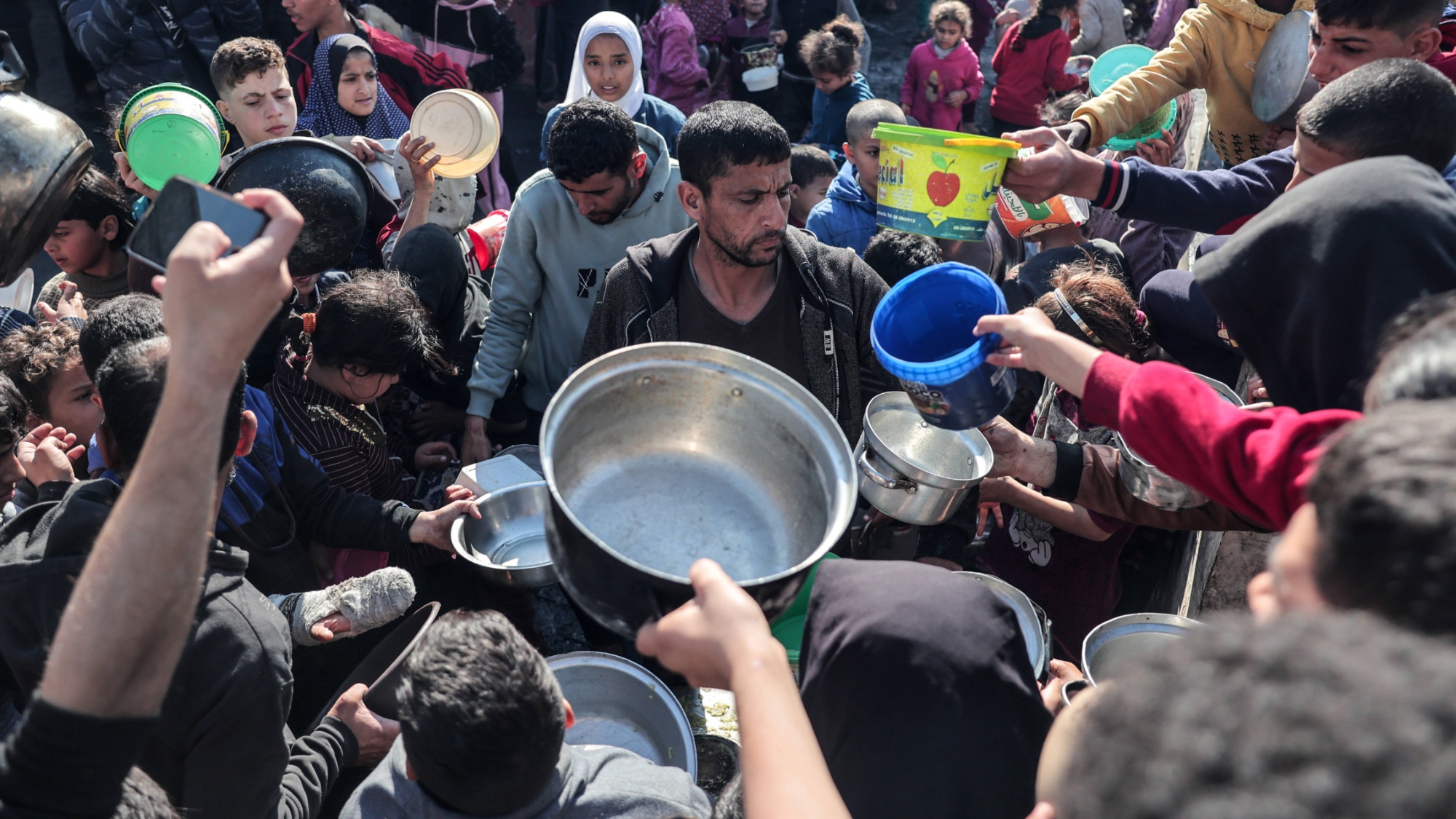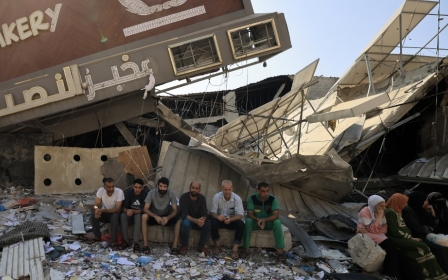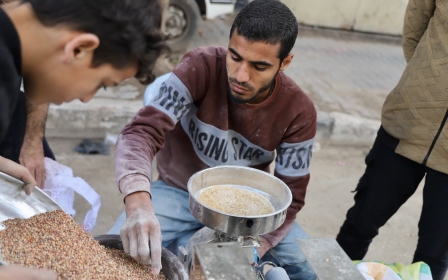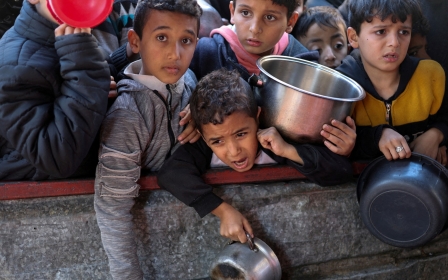Starvation in Gaza: 'If we stay like this for another week, we will die en masse'

The famine in northern Gaza, caused by Israel's strangling siege, has reached extreme levels, Palestinian residents there have told Middle East Eye. There have been several reports of people dying from malnutrition, including infants.
Life for over half a million people there now revolves around a single task every day: finding something to eat. In this following account, a resident of Gaza City, who did not wish to be named, recounts to MEE's Lubna Masarwa the struggle to survive in a war-torn city.
Things are difficult. Getting anything has become a difficult task, even simple things like sugar, salt and rice.
We go on looking for them everywhere, even in old shops and abandoned homes. If and when we find them in shops, they are sold at crazy prices.
About four days ago, around 800 bags of wheat flour came in. There are up to 700,000 people in northern Gaza. This means one bag for around every 1,000 people or so.
New MEE newsletter: Jerusalem Dispatch
Sign up to get the latest insights and analysis on Israel-Palestine, alongside Turkey Unpacked and other MEE newsletters
My cousin was among those people who managed to get a bag. It's 25kg. He distributed it among our extended family and each of us got one kilo.
Just like everyone else in Gaza, my sister and I mixed our share with corn and soy flour.
We do this to increase the quantity.
'I have completely forgotten what food tastes like'
I spent three hours in the morning starting the fire and cooking it, and in the end, it wasn't good. It was hard, uncooked and tasted weird. My sister started crying and I tried to calm her by saying we could add thyme to it and eat it that way.
Then I visited my aunt's house and they were struggling to get the fire started because the remaining wood in Gaza is not good. So I spent the next three hours helping them.
After that, I went to my uncle's house and they had the same problem, so I helped them.
My uncle didn't seem right to me during the visit. I asked him what was wrong and he didn't answer. Later, his son told me he hadn't eaten. He gave the small thyme pies they made to the children and refused to eat.
At the end of this very long and tiring day, an air strike hit nearby. I was terrified because I was on the upper floor. It was very close.
Dying en masse
We've reached our limit. Things are miserable and get worse every day. It's beyond famine.
I've become so frail. I was a healthy guy. I used to ride horses and run. Now I can't even go up the stairs without feeling very exhausted.
I have completely forgotten what food tastes like. I no longer know what fruit or chicken taste like. We had only rice and even that is scarce now.
If found, one kilo of rice costs 80 shekels ($22), when before the war it cost seven shekels ($1.90). We are running out of things like cooking oil, yeast, corn and barley. Even animal feed that we were forced to eat at some point is running out. Every day something runs out.
'To die from the bombs is better than to die from this hunger'
I know people who started to eat wild herbs.
If we stay like this for another week, I think we will start seeing people die from starvation en masse.
There's nothing left here. Healthy people are getting sick and sick people are dying.
It doesn't matter whether you have money or not. It doesn't matter whether you stored food at the start of the war or not. Everything has run out. We're all the same. There's no way around it.
To die from the bombs is better than to die from this hunger. At least with air strikes, you die right away.
But now, we keep going round and round each day just to find a bite to keep us standing.
This article is available in French on Middle East Eye French edition.
Middle East Eye delivers independent and unrivalled coverage and analysis of the Middle East, North Africa and beyond. To learn more about republishing this content and the associated fees, please fill out this form. More about MEE can be found here.




